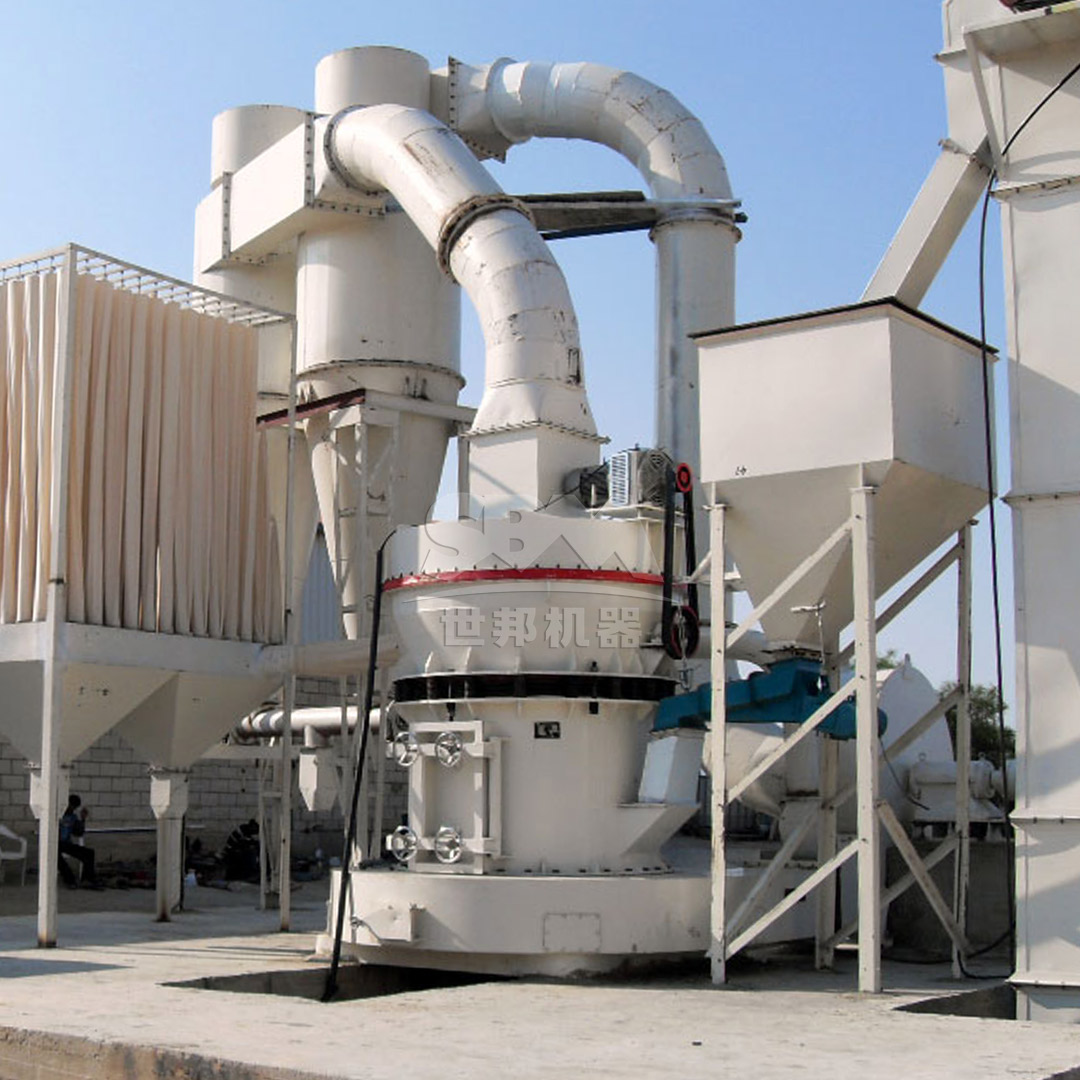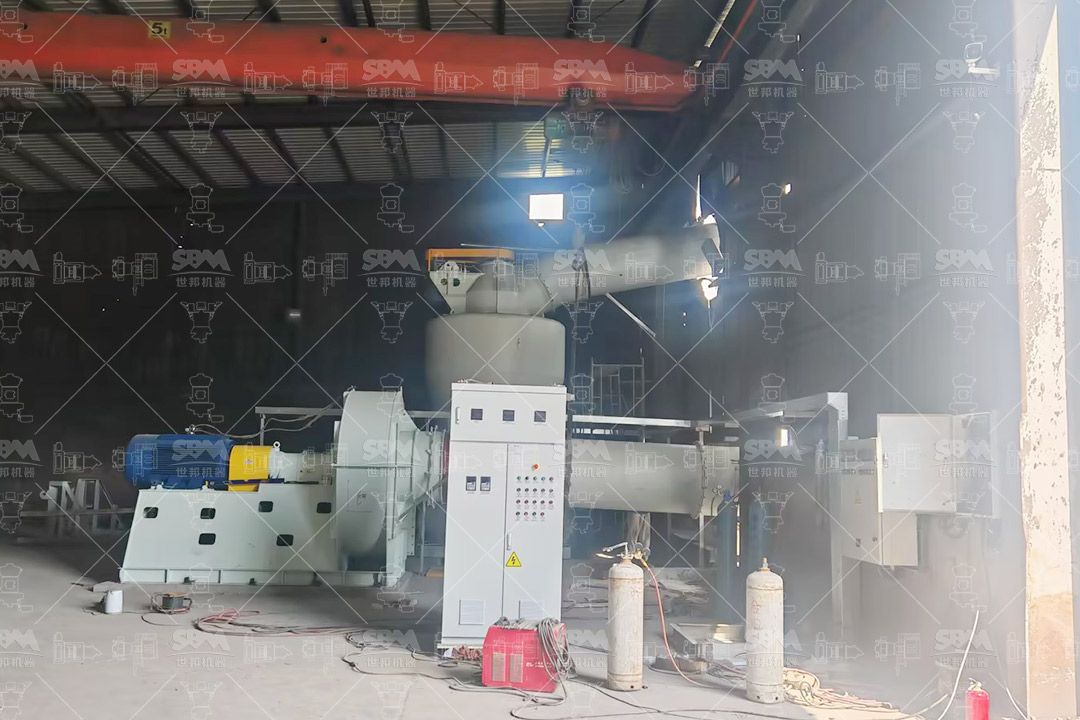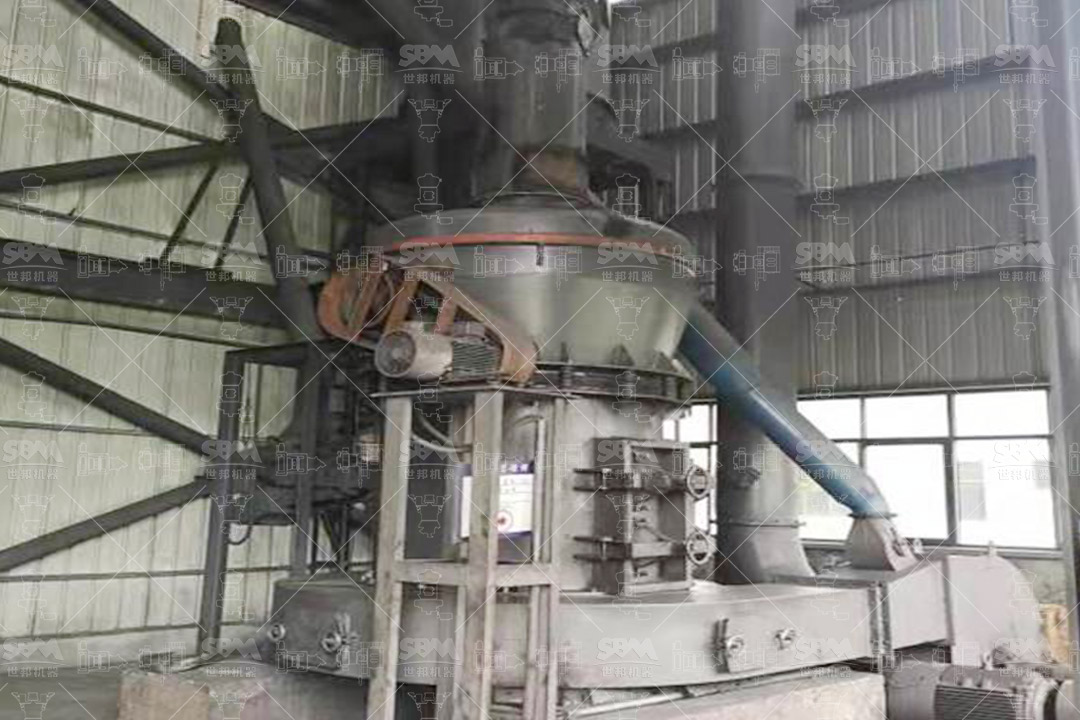Gypsum processing is a critical operation in various industries, particularly in construction materials manufacturing where gypsum powder serves as the primary component for plaster, drywall, and other building products. The efficiency of gypsum grinding directly impacts product quality, production costs, and environmental compliance. Vertical roller mills (VRMs) have emerged as the preferred technology for gypsum processing due to their superior efficiency, precision, and operational advantages compared to traditional grinding systems.

Vertical roller mills operate on the principle of bed compression grinding, where material is ground between a rotating table and rollers pressed against it. The fundamental components include:
In gypsum processing, the VRM’s ability to simultaneously dry, grind, and classify material within a single unit provides significant advantages over multi-stage processing systems.
The processing sequence begins with raw gypsum feeding through the center of the rotating table. Centrifugal force distributes the material evenly across the grinding path where the rollers apply controlled pressure. The ground material is then transported by process air to the integrated classifier, where oversize particles are rejected and returned to the grinding bed for further size reduction. This closed-circuit operation ensures optimal energy utilization and consistent product quality.
Vertical roller mills demonstrate remarkable energy efficiency in gypsum processing, typically consuming 30-50% less energy than traditional ball mill systems. This efficiency stems from several factors:
For gypsum processing specifically, the energy savings are particularly significant due to the material’s relatively soft characteristics, which allow for lower grinding pressures and consequently reduced power consumption.
Gypsum products require precise particle size distribution for optimal performance in final applications. VRMs offer superior control through:
The ability to produce gypsum powder with specific surface areas ranging from 2,000 to 6,000 cm²/g makes VRMs ideal for manufacturing various gypsum-based products with different performance requirements.

Natural gypsum typically contains 5-15% moisture, while by-product gypsum from flue gas desulfurization can contain up to 20% moisture. VRMs efficiently handle this moisture through:
The integrated drying capability eliminates the need for separate drying equipment, reducing both capital investment and operational costs.
Modern vertical roller mills incorporate sophisticated control systems that optimize gypsum processing through:
These systems ensure stable operation and consistent product quality while minimizing operator intervention.
Although gypsum is relatively non-abrasive, certain impurities can accelerate wear in grinding components. Advanced VRMs address this through:
These solutions significantly extend maintenance intervals and reduce operating costs in gypsum processing applications.
Based on extensive experience in mineral processing, we recommend our LM Series Vertical Roller Mill as the optimal solution for gypsum processing operations. This advanced mill system offers specific advantages for gypsum applications:
| Feature | Benefit for Gypsum Processing |
|---|---|
| Integrated Drying System | Handles moisture content up to 20% without pre-drying |
| Precision Classification | Produces consistent fineness from 30 to 325 mesh |
| Low Energy Consumption | 30-40% less power than traditional ball mills |
| Compact Design | Reduces footprint by 50% compared to alternative systems |
| Environmental Compliance | Dust emissions below 20mg/m³ with integrated filtration |
The LM Series incorporates several patented technologies specifically beneficial for gypsum processing, including our unique grinding curve design that optimizes material bed formation and wear distribution. The modular roller assembly system enables quick replacement of wear parts, minimizing downtime during maintenance operations.
For operations requiring ultra-fine gypsum products, our SCM Ultrafine Mill provides exceptional performance in the 325-2500 mesh range (D97≤5μm). This mill is particularly suitable for high-value gypsum applications where superior whiteness and precise particle size distribution are critical. The SCM series features advanced vertical turbine classification technology that ensures no coarse particles contaminate the final product, while its energy-efficient design reduces power consumption by 30% compared to conventional jet mills.

Optimal operation of VRMs in gypsum processing requires proper feed preparation:
Consistent feed characteristics are essential for stable VRM operation and product quality.
Maximizing efficiency in gypsum VRM operations involves:
Regular performance monitoring and adjustment maintain optimal efficiency throughout the equipment lifecycle.
Vertical roller mills offer significant environmental advantages in gypsum processing:
These environmental benefits align with modern sustainability requirements and facilitate permitting processes for new gypsum processing facilities.
The economic advantages of VRMs in gypsum processing extend beyond energy savings:
Return on investment for VRM systems in gypsum processing typically ranges from 1-3 years, depending on plant capacity and local energy costs.
The evolution of vertical roller mill technology continues to enhance gypsum processing efficiency:
These developments will further strengthen the position of vertical roller mills as the technology of choice for efficient and sustainable gypsum processing.
Vertical roller mills represent a significant advancement in gypsum processing technology, offering unparalleled efficiency, precision, and operational flexibility. Their ability to integrate drying, grinding, and classification in a single compact unit provides substantial advantages over traditional processing methods. With continuous technological improvements and growing emphasis on energy efficiency and environmental compliance, VRMs are positioned to remain the dominant technology for gypsum processing worldwide. The selection of appropriate VRM technology, such as our LM Series Vertical Roller Mill or SCM Ultrafine Mill for specialized applications, ensures optimal performance and maximum return on investment for gypsum processing operations of all scales.